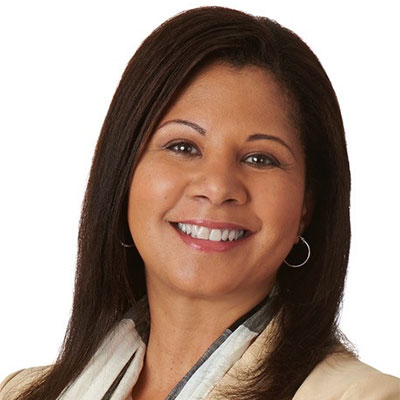Sonya T. Smith Professor, Mechanical Engineering, and Interim Executive Director Research Institute for Tactical Autonomy (RITA) University Affiliated Research Center (UARC)
Sessions
-
AIAA SciTech Forum 2023

Sonya T. Smith obtained her Ph.D. in Mechanical and Aerospace Engineering from the University of Virginia (UVA) in 1995 and was the first African-American woman to do so. She joined the Howard University faculty in 1995 and is the first tenured female faculty member in the Department of Mechanical Engineering. At Howard University she established the Applied Fluids-Thermal Engineering Research Laboratory (@FTERLab), an interdisciplinary theoretical and computational research group. She has received support for her research from NSF, NIH, NASA, DoD, and industry.
Smith was elected Fellow of the American Academy of Arts and Sciences in 2021. Sigma Xi: The Scientific Research Honor Society also elected her to be its president in FY21. She was an MLK Visiting Professor in the Department of Aeronautics and Astronautics at MIT from 2021 to 2022. Smith is a Fellow of the American Society of Mechanical Engineers (ASME) and an Associate Fellow of AIAA. The Women in Engineering ProActive Network (WEPAN) elected her as president in FY22. She also belongs to the American Physical Society (APS), the American Society of Engineering Education (ASEE), the Society of Women Engineers (SWE), and the National Society of Black Engineers (NSBE).
As an experienced scientist and engineer, Smith is committed to promoting diversity, equity, and inclusion. She leads Howard University's NSF ADVANCE-IT award (HU ADVANCE-IT). ADVANCE-IT aims to solve the institutional and national problem of Advancement and Leadership of Women in STEM. She is a long-time board member and former President of the Women in Engineering ProActive Network (WEPAN). WEPAN is a leading champion in North America for advancing women's inclusion in engineering. Smith is also a member of the AIAA Diversity Working Group and the ASME Foundation Board. Her personal goal is to mentor and support young STEM faculty/professionals, especially those who are traditionally underrepresented.
